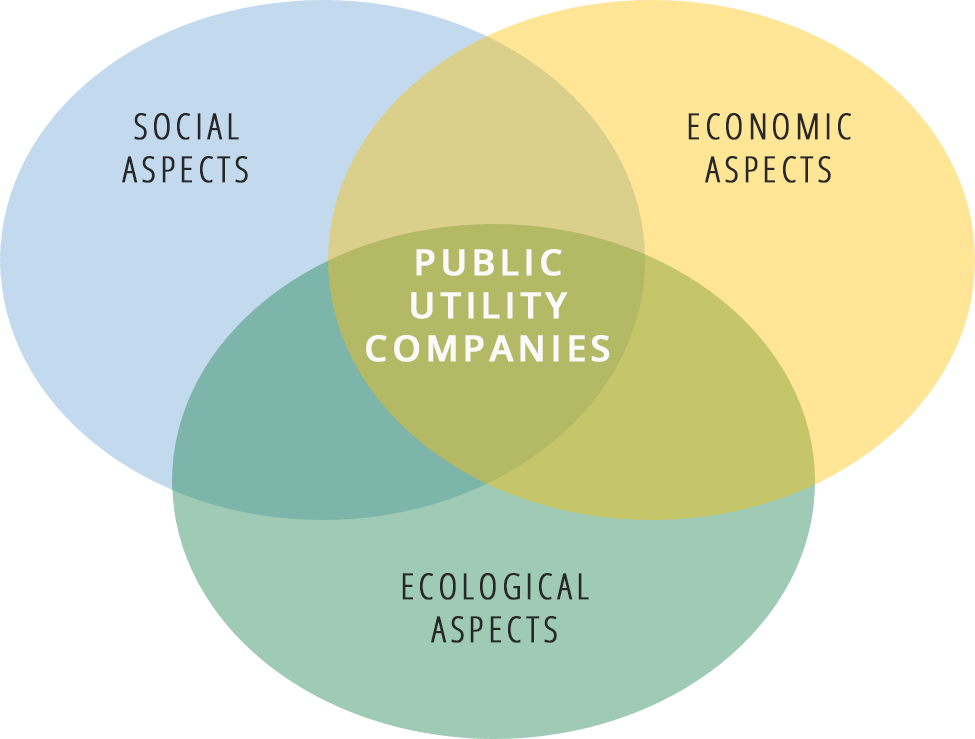On the basis of the Newer Systems Theory, we understand “public utility companies, cities and foundations” as a special type of organization with contradictions, conflicts of interest and, in some cases, paradoxes, which poses special challenges to decision-making and coordination processes. Through years of experience in dealing with this particular type of organization, we have developed a special expertise to help these organizations manage the paradoxes between economic, ecological, and social requirements with greater success.
Public utility companies - organizations with contradictions
It can be observed that in organizations like public utility companies a variety of contradictions, conflicts of interest and sometimes paradoxes are built into the daily decision-making and coordination processes, which can only be found in very few other organizations in this quality and frequency. These phenomena place very special demands both on the organization as a whole and on the actors involved.
Economic requirements, expected returns and business realities on the one hand – the special social and ecological responsibility on the other. Decisions in favor of the one often come at the expense of the other.
This is further aggravated by two facts: First, public utility companies and their employees are still very much influenced by the municipal background which dominated in the past. Second, the business logic has become more and more prevalent in the recent past, which is particularly due to the liberalization in the energy sector.
Challenges in dealing with stakeholders
In addition, public utility companies are often particularly under “observation” by the media and in the focus of public attention. Furthermore, politicians and members of the supervisory boards frequently exert a strong influence on public utility companies and, due to the current political situation, have an essential impact on decision-making processes. If further shareholders or cooperation partners from the so-called “free enterprise” sector join this game, paradoxes and conflicts of interest are inevitable, which put the involved management constellations to a tensile test which shouldn’t be underestimated.
The paradoxes that public utility companies permanently have to overcome can be grouped together around the tension between economic, social and ecological interests, goals and requirements. The core questions here are often: How can the balance between economic, ecological and social aspects be maintained in the long term? And how can we succeed in skillfully managing the tension between the demands of external stakeholders?
Important questions
 Frédéric SedlákSenior Consultant | HR Management
Frédéric SedlákSenior Consultant | HR ManagementWe are always at your service+49 4102 69 93 22
Ask for free informationf.sedlak@spconsulting.de








